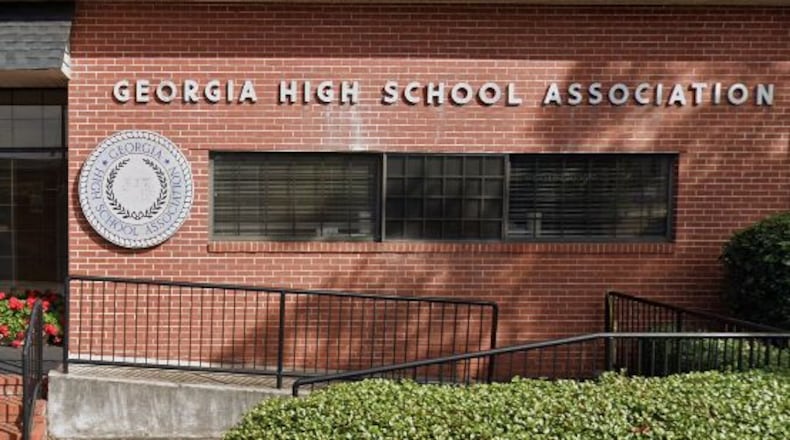The Georgia High School Association board of trustees will meet Wednesday to discuss and potentially vote on reducing the number of classifications to six from its current eight beginning in 2024 and redefining the multiplier that helps determine schools’ class assignments.
GHSA President Glenn White called the virtual meeting to address financial issues related to SB 328, a Georgia Senate bill that proposes to have the GHSA pay for schools’ travel that exceeds 75 miles for competitions.
“If that bill were to go through as it is now, with that travel requirement, it would bankrupt the GHSA before we got through with football and into basketball season,” White said.
White agrees with comments made last week by GHSA executive director Robin Hines that the more practical solution to travel concerns is fewer classifications. Hines doesn’t make the rules; he enforces them. White’s board, or the GHSA’s full executive committee, can make six classes a reality.
“In the past, I have opposed six classes, and the reason being there would be more schools in the playoffs, more state champions, and that sort of thing [with eight],” White said. “At this point, considering the travel issues, I would support six because that’s the only way we can help people in South Georgia and in rural areas to give them enough people to play and not travel so much. That’s what’s best for the whole state.”
The GHSA has had eight classes since 2020. The most recent reclassification, ratified in January, resulted in 11 of the GHSA’s 64 regions having five or fewer schools. Going to six classifications and 48 regions would result in an average of about nine schools per region.
The more schools in a region, the easier it is for those schools to match up with schools near them geographically. The goal of limiting travel is not purely about gas prices. It’s also time out of school for student-athletes.
“My estimate would be 95 to 98% of schools under six classes would be able to get schedules that drastically reduce travel and time out of class,” White said. “You hear stories of them [in South Georgia and non-metro areas] having to travel one way two or three hours on a Tuesday night for a basketball game and kids not getting back until 1 in the morning, then having to go to class the next day.”
The other issue up for discussion is the definition of an out-of-zone student. Currently, any student who lives outside a school’s attendance zone is counted three times to determine the enrollment number that classifies a school. The multiplier is designed to lessen the competitive advantages of schools, mainly private and city schools, that get a high number of out-of-zone students.
White and others now favor not counting students as out-of-zone if they have attended the school or a feeder school since elementary school.
“The argument is that if children come to you in elementary school, or some maybe in pre-K or kindergarten, they’re really your kids,” White said. “So why should they count as out-of-district when they’ve been with you that long?”
The board is not obliged to vote Wednesday. It could make a commitment toward a bylaw change or choose to discuss the matter again down the road. Bylaw changes require two votes that are 30 or more days apart.
White said he hoped Wednesday’s meeting would show lawmakers that their voice was being heard.
“What we’ve heard from the Legislature and from Robin’s talks with them is that these are issues they feel are legitimate and should be addressed,” White said. “I think we can let them know we’re looking into it, and it will help the situation as far as SB 328 goes.”
About the Author

